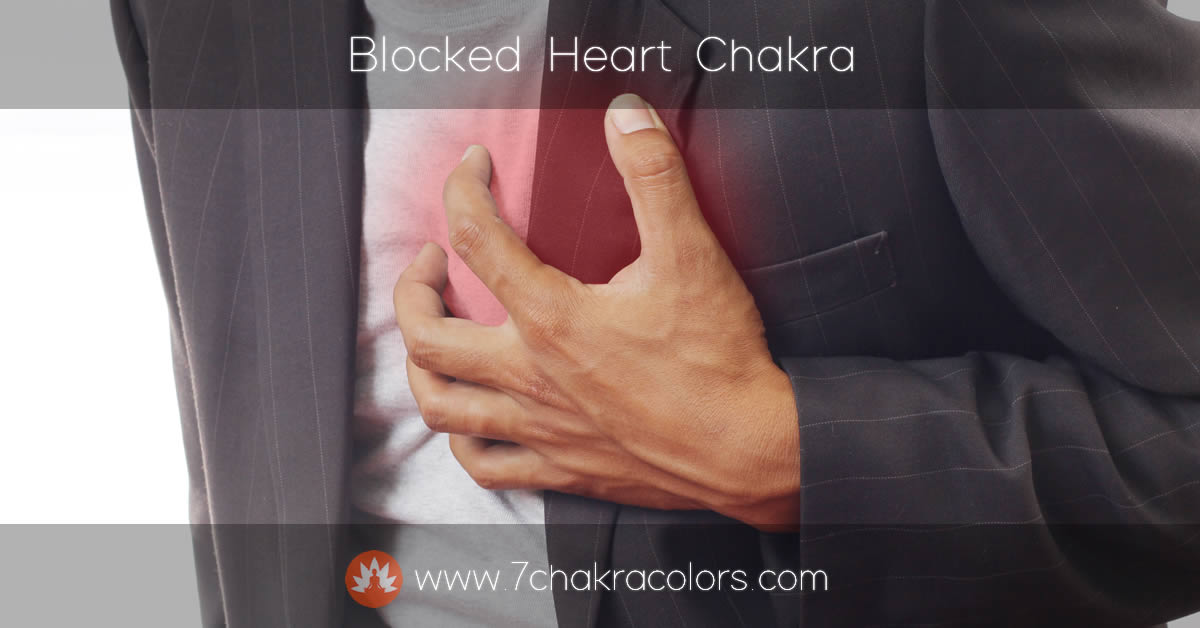

Explore the Heart Chakra’s meaning, location, and properties in our complete guide. Learn how to heal and balance your Anahata for enhanced love, compassion, and emotional harmony. Discover affirmations, meditations, yoga poses, and more to unlock unconditional love.
The Heart Chakra is the fourth of the seven main chakras in the body. It is a bridge and a connection point between the lower three chakras (earthly/material) and the higher three chakras (spiritual/aetheric).
Your heart chakra sits in the center of your chest. Anatomically, it corresponds to around T4-T6 - the mid-thoracic vertebrae (4) between your shoulder blades.
When you focus on it, you'll feel the energy concentrated in that space behind your sternum, sometimes spreading across your entire chest or radiating out toward your shoulders.
This is your fourth chakra. Your bridge between lower and upper energy centers.
Anahata handles love, compassion, connection. Not just romantic love - all of it. Your ability to give and receive affection, to feel empathy, to open yourself to others without losing yourself. It's where you connect to something bigger than your individual existence.
The energy here expands and contracts. It opens outward toward others and pulls inward for self-care. Both movements matter equally. When it's balanced, you can love freely without depleting yourself.
This one gets blocked when you've been hurt. When trust breaks, when grief settles in, when you decide it's safer to keep people at arm's length. All that protection builds walls around your heart chakra, turning what should be open into something guarded and tight.
When this chakra's working right, you feel connected. To yourself, to other people, to life itself. Compassion comes naturally - for others and for yourself. You can hold space for pain without drowning in it.
Most people either shut this chakra down completely or give too much through it until there's nothing left.
That heaviness in your chest. The ache that sits there even when nothing's physically wrong. That's usually your heart chakra asking for attention.
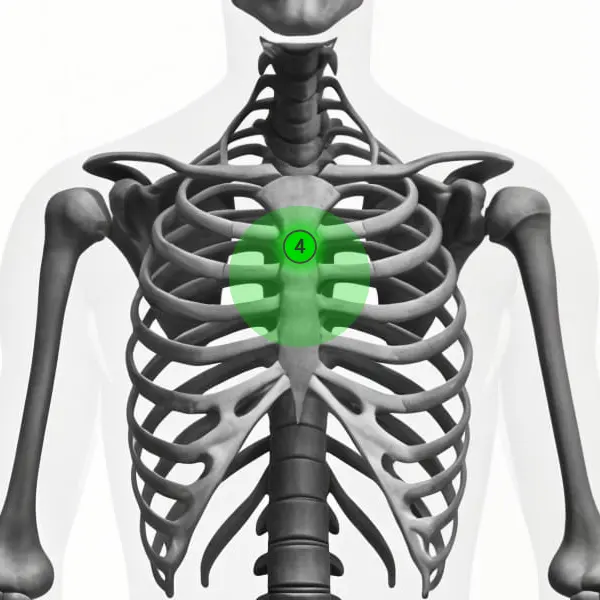
Diagram is showing where heart chakra is located on your spine (green dot 4) and where the energy of the heart chakra can be felt when you concentrate on it (transparent green circle)
The word "Anahata," the Sanskrit name for the fourth chakra, translates to "unstruck" or "unbeaten."
It is composed of two Sanskrit words:
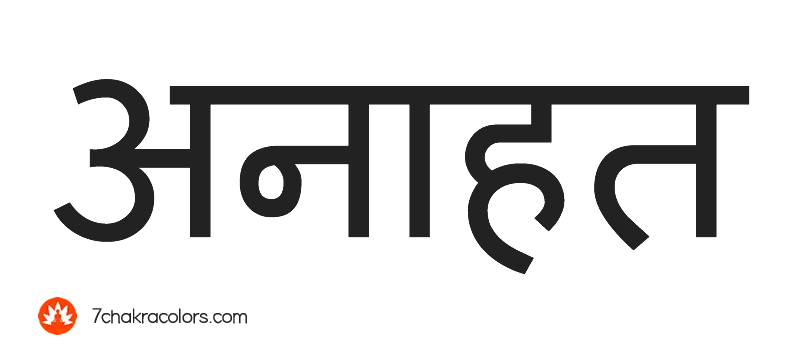
This chakra is the center of love, compassion, and the driving force for connection and healing.
Serving as the seat of one's emotional well-being, the heart chakra helps shape relationships and fosters empathy.


The heart chakra is located in the area of the chest and thoracic vertebrae, in the center and in line with the heart, behind the breastbone, between the shoulder blades.
The fourth chakra is in the middle of our energy system. Its position is above the third chakra (Manipuira) and just below the throat chakra.
As such it connects the earthly grounding energies stemming from the lower chakras with the celestial energies flowing from the upper chakras.
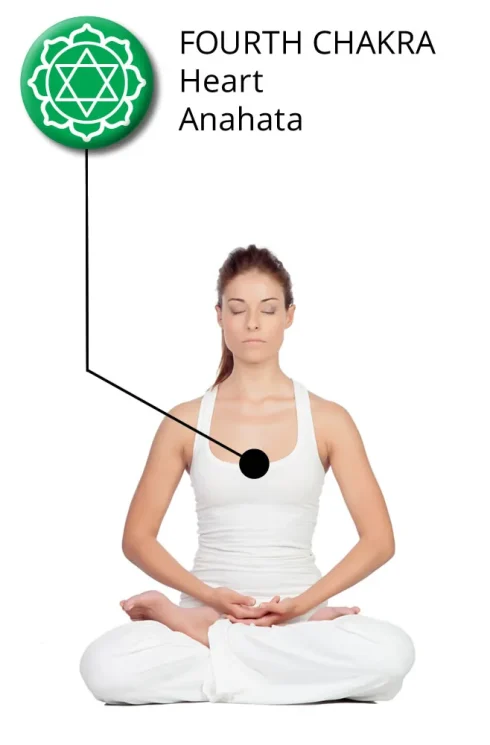
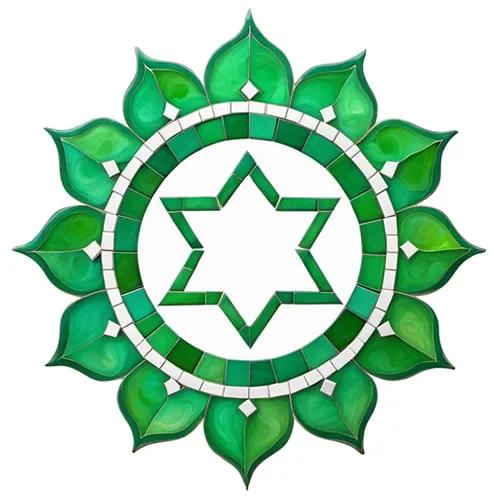
The fourth chakra is represented by a twelve-petal rosette that denotes universal love, which is, according to Indian bhakti-yoga, a path towards devotion and humbleness. In Christian traditions, it represents the love for one’s fellow men.
The symbol of the fourth chakra is a hexagram consisting of two interlaced equilateral triangles, one pointing up and the other one down.
The first one symbolizes the male principle of God, represented by Shiva, the symbol of consciousness, and the second one symbolizes the female principle of God, represented by Shakti, the divine mother goddess and a symbol of energy.
The heart chakra symbol, known as "Anahata" in Sanskrit, is represented by a twelve-petal lotus and two intersecting triangles forming a six-pointed star. Here's a breakdown of its key elements:
Intersecting Triangles: The upward and downward-pointing triangles represent the union of masculine and feminine energies, as well as the balance between earthly and spiritual matters. Sometimes the intersecting triangles can be represented as 6-pointed star.
Twelve Petals: The twelve petals represent the twelve qualities of the heart, such as love, peace, understanding, empathy, and harmony.
Color: The heart chakra is associated with the color green, symbolizing healing, compassion, and love. The soothing green reflects the chakra's connection to nature and the energy of love.
If your heart chakra is blocked, it can prevent you from fully experiencing love, compassion, and emotional connection with yourself and others.
This energy center is deeply linked to your emotional well-being, self-love, and your ability to nurture healthy relationships.
Signs of a blocked heart chakra may include feelings of emotional detachment, difficulty forgiving, or experiencing a lack of empathy. You may also notice physical discomfort in the chest area, such as tightness or pain.
To support the healing of your heart chakra, focus on activities that encourage emotional openness and healing, such as practicing gratitude, engaging in loving-kindness meditation, or spending time with loved ones.
By nurturing compassion, both for yourself and others, you strengthen this chakra and invite more love and joy into your life.

The heart chakra test is an insightful tool for assessing your emotional balance and understanding how love, compassion, and connection influence your life.
This test helps evaluate your ability to give and receive love, your emotional well-being, and your capacity for forgiveness, uncovering any imbalances within the heart chakra.
Participants can gain a deeper understanding of how their emotional resilience, empathy, and relationships are impacted by the heart chakra's energy.
The test typically includes questions that invite self-reflection on topics such as emotional openness, love for oneself and others, and the ability to heal and forgive.
By exploring your heart chakra, you can foster emotional healing, cultivate self-love, and create stronger, more meaningful connections in your life.
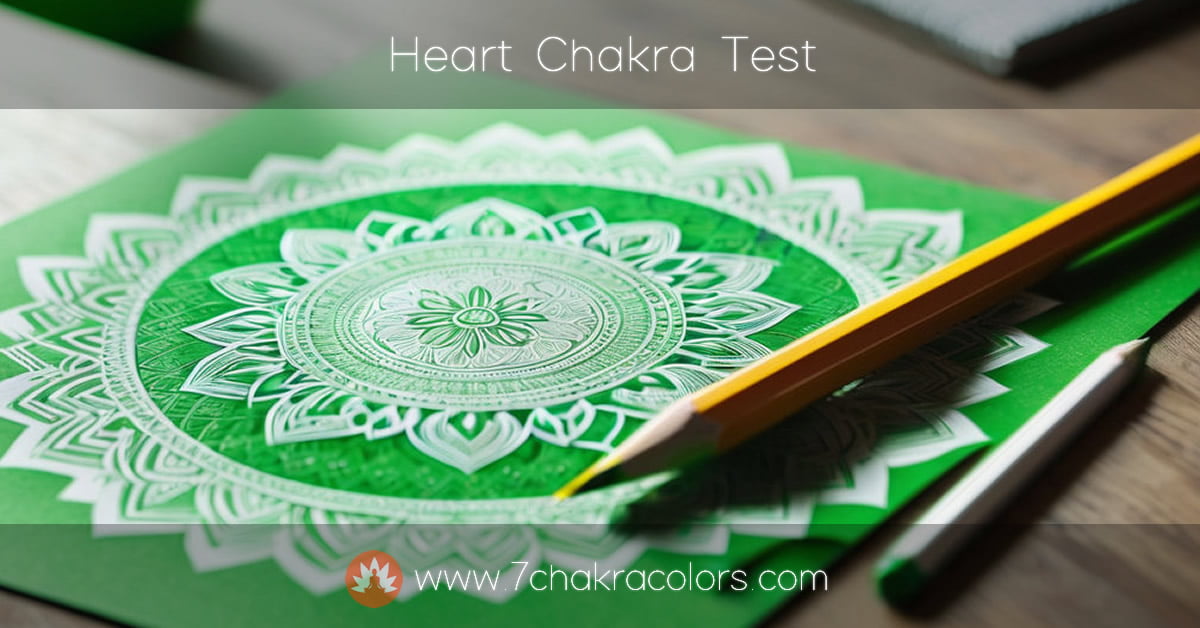
Opening the heart chakra invites an overwhelming sense of love, compassion, and emotional healing.
When balanced, the heart chakra enhances your ability to connect deeply with others, nurturing healthy relationships and fostering a sense of emotional well-being.
Signs of an open heart chakra include a greater sense of empathy, increased forgiveness, and a deeper connection to love. You may also experience an improved sense of inner peace and emotional stability, as this chakra nurtures your emotional vitality.
Furthermore, feelings of acceptance and unconditional love grow, empowering you to give and receive love freely and establish emotional boundaries.
Engaging in practices like meditation, acts of kindness, or simply being present with loved ones can further support this balance, helping you navigate life with compassion and emotional clarity.
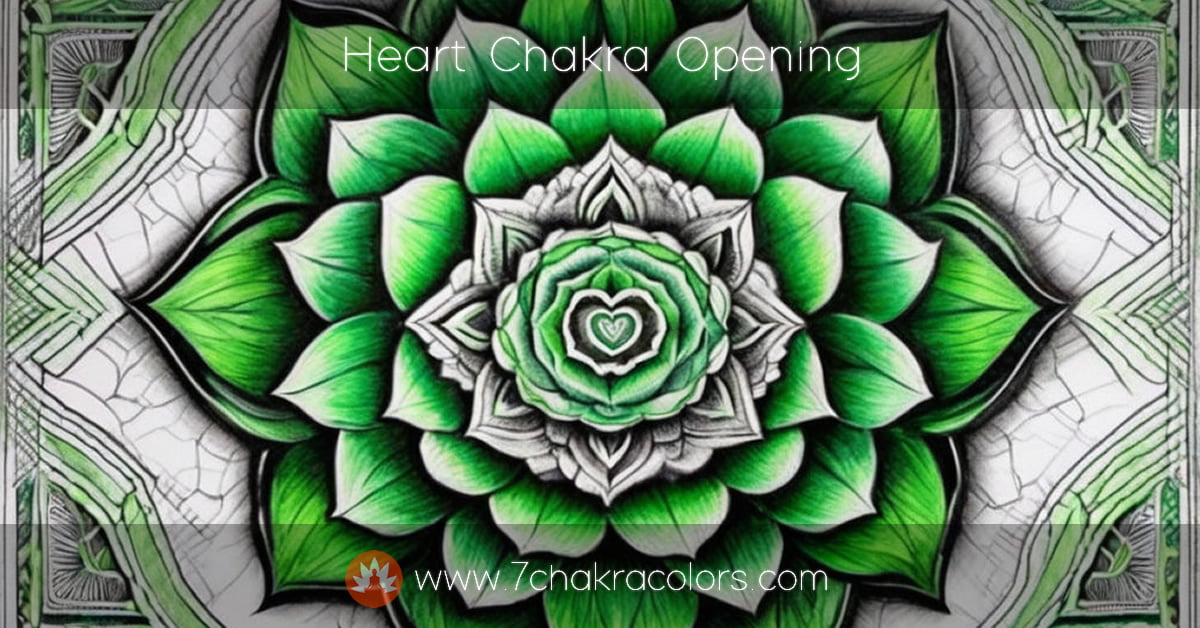
Heart chakra stones and crystals are essential for enhancing the energy of the fourth chakra, fostering love, compassion, and emotional healing.
Gemstones like rose quartz, emerald, and jade resonate with the heart chakra’s vibrations, helping to open the heart, promote deep emotional balance, and heal past wounds.
Incorporating these stones into your meditation practice or keeping them nearby throughout the day can nurture feelings of love, empathy, and forgiveness.
Each crystal has unique healing properties—rose quartz encourages unconditional love and self-compassion, while jade supports healing and attracts positive energy.
Embracing these heart chakra stones can enhance your emotional well-being and guide you toward a more harmonious and compassionate life.
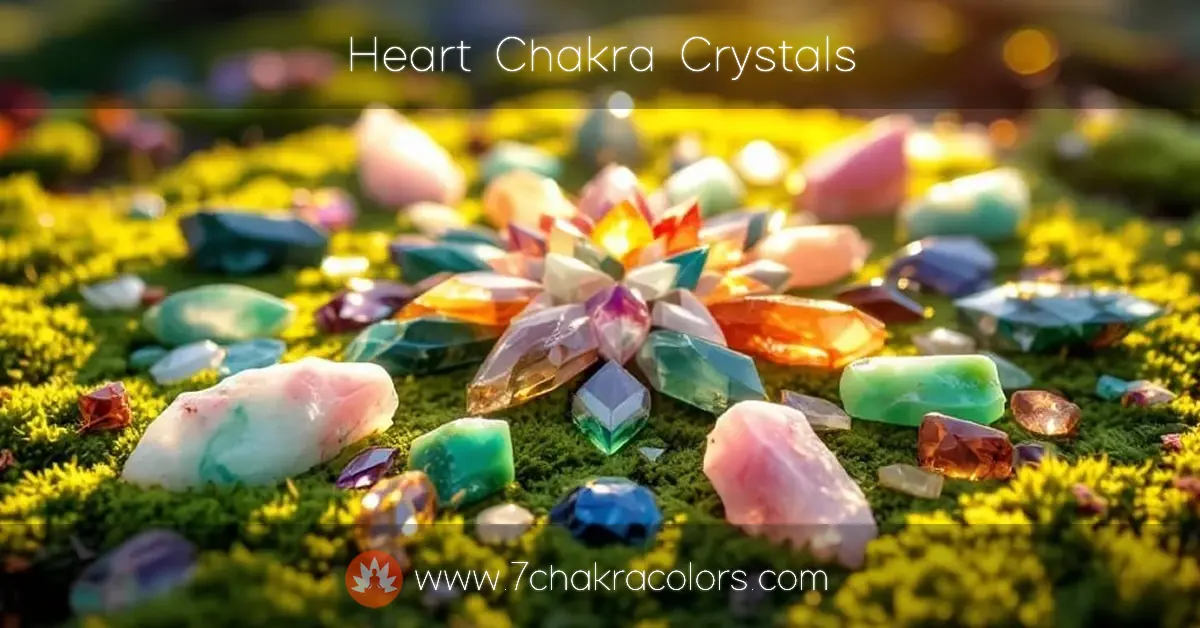


Heart chakra meditation is a powerful practice for nurturing love, compassion, and emotional healing.
By finding a comfortable seated position and bringing your awareness to the center of your chest, you can connect with the energy of this chakra.
Visualizing a glowing green or pink light radiating from your heart space can help release emotional blockages and restore balance.
As you breathe deeply, focus on affirmations of love, forgiveness, and acceptance, allowing any negative emotions or past hurts to dissolve and be replaced with healing energy.
This practice enhances your ability to give and receive love, promoting deeper emotional connections and inner peace.
Regular heart chakra meditation can improve your emotional well-being, foster compassion, and create a more loving and harmonious life.

Heart chakra affirmations are a powerful tool for cultivating love, compassion, and emotional healing.
By repeating positive affirmations such as "I am open to love and kindness" or "I embrace unconditional love," you can align your energy with the nurturing qualities of the heart chakra.
These affirmations help dissolve feelings of resentment and fear, fostering emotional balance and self-compassion.
Incorporating these affirmations into your daily routine, whether during meditation or as you go about your day, can strengthen your connection to your heart's wisdom and cultivate a deeper sense of peace and connection.
Regular practice nurtures self-love, compassion for others, and the ability to give and receive love freely, enhancing emotional well-being and spiritual growth.
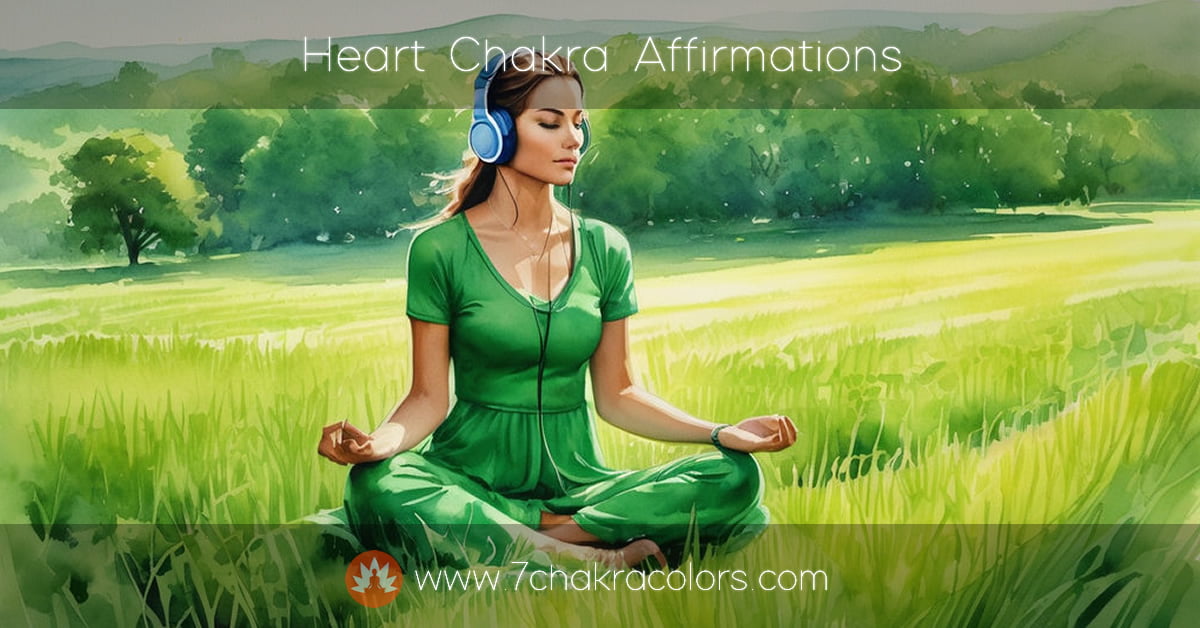
| Main Names | Heart Chakra, Fourth Chakra, Anahata, Heart Center |
| Meaning of "Anahata" | From Sanskrit, meaning unstruck, unbeaten, or soundless |
| Location | Center of the chest, near the heart |
| Corresponding Gland | Thymus, responsible for immune system regulation |
| Color | Green (sometimes pink) |
| Sound/Mantra | YAM (chanting or focusing on this sound can help balance the Heart Chakra) |
| Number of Petals | Twelve petals, each with one of these Sanskrit syllables: ष (ṣa), स (sa), म (ma), व (va), र (ra), श (śa), ज (ja), श (sha), ष (ṣa), त (ta), न (na), प (pa) |
| Primary Themes | Love, compassion, empathy, forgiveness, connection |
| Positive Aspects | Unconditional love, deep empathy, forgiveness, emotional healing, compassion |
| Negative Aspects | Grief, loneliness, fear of betrayal, emotional instability, inability to forgive |
| Associated Body Parts | Heart, lungs, chest, arms, hands, diaphragm, circulatory system |
| Common Physical Ailments | Heart disease, asthma, lung conditions, respiratory issues, chest pain, circulatory problems |
| Mental and Emotional Issues | Loneliness, lack of emotional balance, fear of love, difficulty in forming relationships |
| Element | Air |
| Primary Symbol | Heart symbol |
| Animal Symbols | Antelope, deer, dove |
| Associated Sense | Touch |
| Deities | Venus, Lakshmi, Kwan Yin |
| Frequency | 341.3 Hz |
| Affirmations | "I am open to love." "I give and receive love freely." "My heart is open and balanced." |
| Crystals | Rose Quartz, Green Aventurine, Emerald, Rhodonite, Jade |
| Essential Oils | Rose, Lavender, Geranium, Ylang Ylang, Bergamot |
| Yoga Poses | Camel Pose (Ustrasana), Heart Chakra Opening Pose, Bridge Pose (Setu Bandhasana), Cobra Pose (Bhujangasana), Fish Pose (Matsyasana) |
| Mudras | Padma Mudra, Anahata Mudra, Lotus Mudra |
| Dietary Suggestions | Green leafy vegetables, green tea, fruits (especially apples, avocados, and pears), nuts |
| Positive Spiritual Traits | Empathy, compassion, unconditional love, selflessness |
| Nature Connection | Spending time in nature, especially around plants and trees |
| Season | Spring |
| Associated Planets | Venus |
| Personal and Professional Traits | Empathy, collaboration, emotional intelligence, kindness in relationships |
| Self-Care Practices | Engaging in acts of kindness, practicing forgiveness, heart-opening meditation |
| Astrology | Associated with Libra and Taurus for love and connection |
| Healing Practices | Breathing exercises, guided visualization, energy healing, practicing self-love |
| Numerology | 6 (symbolizing love, balance, and nurturing) |
| Relationship Dynamics | Healthy and balanced emotional expression, building trust, fostering love in relationships |
The heart chakra, also known as Anahata in Sanskrit, is the fourth chakra located in the center of the chest. It governs love, compassion, forgiveness, and emotional healing, connecting the physical and spiritual aspects of ourselves.
A blocked heart chakra can manifest as emotional distance, fear of intimacy, lack of empathy, or holding onto grudges. Physical symptoms may include heart and lung issues, high blood pressure, or a weakened immune system.
Balancing your heart chakra involves practices that cultivate love and compassion, such as practicing forgiveness, showing gratitude, and connecting with others emotionally. Meditation, affirmations, and heart-opening yoga poses like Camel Pose (Ustrasana) and Bridge Pose (Setu Bandhasana) can also help.
A balanced heart chakra allows you to give and receive love freely, fosters deep compassion, and helps you form healthy, meaningful relationships. You feel more emotionally fulfilled and at peace with yourself and others.
Crystals like rose quartz, green aventurine, jade, and rhodonite are excellent for healing the heart chakra. These stones can be used in meditation, worn as jewelry, or placed on the heart chakra during energy healing sessions.
The heart chakra plays a central role in relationships, as it governs our ability to love, forgive, and connect emotionally with others. When balanced, it fosters healthy communication, compassion, and trust, while a blocked chakra may result in feelings of isolation or conflict.
Physical signs of an imbalanced heart chakra may include respiratory issues, heart problems, chest pain, or tension in the upper back and shoulders. Balancing this chakra can help alleviate these symptoms.
Yes, meditation is a powerful way to heal the heart chakra. Focus on the heart center and visualize a green light glowing in your chest. Using the mantra “YAM” and practicing loving-kindness meditation (Metta) can also help balance the heart chakra.
Essential oils such as rose, lavender, geranium, and jasmine are excellent for opening and balancing the heart chakra. You can diffuse these oils, apply them topically, or add them to a bath to promote emotional healing.
Forgiveness is a key component of heart chakra healing. Holding onto resentment and grudges can block the heart chakra, preventing the free flow of love and compassion. Practicing forgiveness allows you to release emotional burdens and open your heart to healing.
The heart chakra governs self-love, allowing you to treat yourself with kindness, compassion, and acceptance. When the heart chakra is balanced, you have a healthy sense of self-worth and are able to nurture yourself emotionally.
Yoga poses that focus on heart-opening include Camel Pose (Ustrasana), Bridge Pose (Setu Bandhasana), and Cobra Pose (Bhujangasana). These poses help release tension in the chest area and promote emotional openness.
The heart chakra is connected to emotions such as love, compassion, empathy, and joy. When balanced, it helps you experience and express these emotions freely, deepening your emotional connections with others.
An imbalanced heart chakra can lead to emotional issues such as jealousy, anger, grief, or emotional withdrawal. Healing the heart chakra helps restore emotional balance and promotes emotional well-being.
Yes, emotional or physical trauma, especially related to relationships or loss, can block the heart chakra. Healing this chakra involves addressing past wounds and allowing yourself to feel love and compassion again.
Affirmations like “I am worthy of love,” “I forgive myself and others,” and “I give and receive love effortlessly” can help heal the heart chakra. Repeating these affirmations daily can strengthen your connection to love and compassion.
The heart chakra is the center of compassion. A balanced heart chakra allows you to extend kindness and empathy to others without judgment, creating deeper and more meaningful relationships.
Breathwork practices like pranayama (deep, controlled breathing) can help release emotional blockages and promote healing in the heart chakra. Focusing on slow, rhythmic breathing while visualizing green energy flowing through the heart can bring balance.
Yes, sound healing is effective for balancing the heart chakra. Chanting the mantra “YAM” or listening to frequencies around 639 Hz can help clear blockages. Singing bowls or tuning forks tuned to this frequency are also beneficial.
Practicing gratitude helps open and balance the heart chakra. Focusing on the things you are thankful for promotes a sense of emotional fulfillment and helps cultivate positive emotions like love and joy.